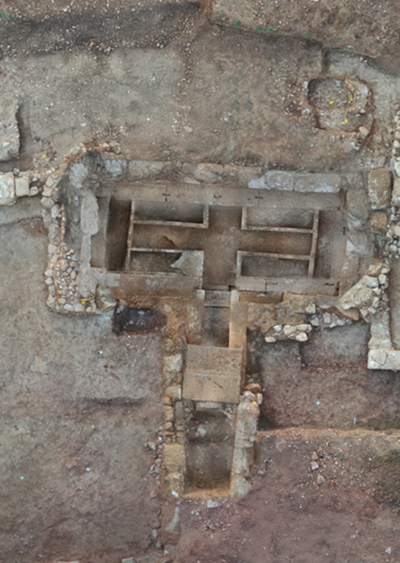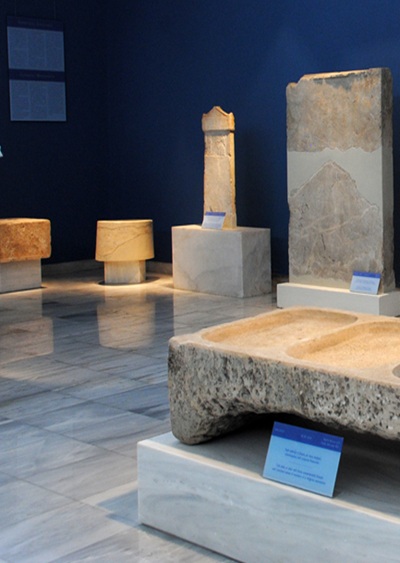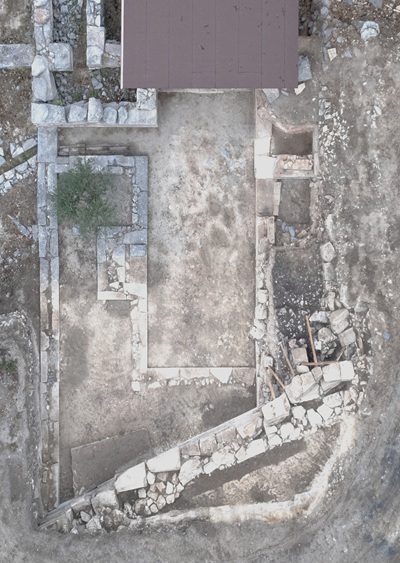
On Thursday, December 19, 2024, in a ceremony held at the Numismatic Museum, in the presence of the Minister of Culture, Lina Mendoni and the Minister of Culture and Tourism of Turkey Mehmet Nuri Ersoy, 1055 ancient coins were returned, which were attempted in 2019 to be illegally imported into Greece from Turkey.
There are 61 silver stateras (dithrachms), struck in cities of Pamphylia, Cilicia, Ionia, Cyprus, but also Aegina and Milos, and 994 silver Athenian tetradrachms, including one undercrown, with minting dates ranging from the beginning to the end of the 5th century BC. Their delivery to Turkey is in accordance with the provisions of the 1970 UNESCO International Convention and the “Protocol for the Prevention and Suppression of the Illicit Import, Export, Circulation and Transfer of Ownership of Cultural Property”, signed by the two countries on 4 March 2013 in Istanbul.
As Lina Mendoni pointed out, “for Greece, the repatriation of every cultural asset, which has been illegally exported from our territory, is an occasion of great joy and satisfaction. Greece is included among the countries that are victims of theft, looting and illegal trafficking of their cultural treasures. That is why Greeks are particularly sensitive to the issues of repatriation. We firmly believe that all illegally exported antiquities, from any country, should be returned to their place of origin and to the peoples to whom they belong, as part of their collective identity. For this reason, Greece is at the international forefront of the fight against antiquities theft, organized crime against the historical memory of every people.”
Lina Mendoni thanked the Turkish Minister of Culture and Tourism “for the support that your country has consistently provided to my country, regarding our national demand for the reunification of the Parthenon Sculptures in Athens. Zeynep Bos’s position, based on your instructions, at the last UNESCO Intergovernmental Committee, was a catalyst. It is fortunate that the international community is becoming increasingly aware that illicit trafficking in cultural goods is not just a form of criminal activity, but a complex and well-connected operation of global organised crime, with multiple consequences and implications, which still manages to resist concerted international efforts to combat it. We will continue to work tirelessly and cooperate, bilaterally and multilaterally, to combat antiquities theft and illicit trafficking of cultural goods. The protection of cultural heritage can only be achieved through cooperation, mutual assistance and mutual understanding between peoples and States. Respect for and protection of cultural heritage is a national responsibility and a universal moral obligation. We are all co-responsible for the preservation of our culture and our historical memory”.
The coins had been detected and seized by customs officials of the Evros Kipoi Customs in July 2019 in the hands of a Turkish national, when he attempted to illegally import them into Greece, carefully hidden in his luggage. Following the seizure, a case file was formed and the case was referred to the Justice Department. They were handed over for safekeeping to the Ephorate of Antiquities of Evros and then transferred to the Numismatic Museum for an assessment of their archaeological and economic value. According to the conclusion of the Permanent Tripartite Valuation Committee for the determination of the monetary value of ancient coins, all the coins are part of a monetary ‘treasure’ that was hidden at the end of the 5th or beginning of the 4th century BC in Asia Minor.
The Directorate of Documentation and Protection of Cultural Property sent photographic material of the coins to the Turkish side through the Ministry of Foreign Affairs, while archaeologists from the Ministry of Culture and Tourism of Turkey sent a report on the documentation of the coins’ origin. The report of the Turkish experts fully agrees with the documentation of the Tripartite Evaluation Commission and the Numismatic Museum, i.e. that the coins are part of a “treasure” concealed at the end of the 5th/beginning of the 4th century BC in Asia Minor and therefore their illegal trafficking from Turkey to Greece is unquestionable. Following the irrevocable convictions by the Greek Courts, the two parties have cooperated to finalise the return of the ‘treasure’ to its country of origin, given the attempted illegal importation of the treasure into our country by a Turkish national.
Prior to the ceremony, the two Ministers held a meeting, which focused on issues of bilateral interest regarding cultural cooperation between the two countries.







Leave A Comment